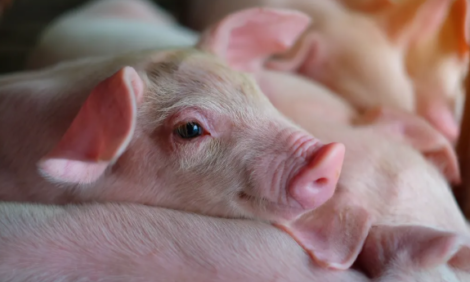



Global update on African swine fever – China, Russia, Germany, Romania
For ASF, Germany is the hot topic, but let's get a global ASF update from the USChina
China continues to deal with a devastating outbreak that has crossed their country starting in 2018 when the first case was identified.
“We're not hearing a lot of new news out of China. A few breaks here and there are reported out through the official media,” said Dr. Dave Pyburn, chief veterinarian at the National Pork Board. “However, we have been in discussions with veterinarians who are working within China, and they tell us ASF is nowhere near under control in China. They're still having outbreaks and are still losing pigs to African swine fever. It's going to be a long time before China gets that situation cleaned up.”
Russia
ASF is still primarily in feral swine within Russia.
“In the last week or two, we've seen reports on Russian doing some testing in pork products within their country,” said Dr. Pyburn. “These are products that have been generated within Russia, then before they're consumed, they're testing them for African swine fever. They are finding some virus in some of those products. So, ASF continues to circulate and is a definite risk for commercial swine within Russia.”
Germany
The global industry continues to monitor the ASF outbreak in Germany that was first reported September 10, 2020 in feral swine in Brandenburg state, located in the eastern part of Germany near its border with Poland.
“Brandenburg is a long way from where they have most of their commercial production,” he explained. “Where they have found the feral swine positive in that state is about 300 miles from their closest commercial production. So far, all their findings, and there's been 90+ total positive findings in feral swine. A key thing for us to learn and note is that once they found ASF in feral swine, Germany’s commercial production was banned for exports by most of their trade partners.”
Germany can continue to export within the EU, but outside of the EU, most of their trade has been halted. Germany is working to regionalize the outbreak and bring back the trade lost due to the outbreak only coming from the feral swine population.
Risk of ASF entering commercial operations in Germany
Pyburn said the outbreak has occurred in a part of Germany where there are primarily smaller pig farms.
“They haven't reported any positives, and they are testing on those small farms,” he noted. “Of course, there's always a risk that there has been contact between those feral swine and commercial swine on those small farms.”
Germany had built a fence to wall near the Brandenburg, Germany-Poland border area. They also aren’t allowing animal or pork product movement or hunting of the feral swine within that area.
“They're working really hard to keep it concentrated in that small area of Brandenburg state where it's currently at, but there's always the risk that especially product-wise that you get somebody that either moves a product illegally out of there, or potentially even, moves illegal live animals out of there and that it will spread then. But at this point, they have not seen that occur.”
The fence they built is located right on the border with Poland because that area of Poland is ASF positive. The was designed to keep out the movement of feral swine crossing the border coming into Germany. It wasn't a permanent fence, but they're working now to improve the fence and make it a more permanent fence along that border with Poland, according to Dr. Pyburn.
Romania
Romania continues to be a hotspot for ASF.
“They do not have it under control within Romania, and they may not, in fact, have the infrastructure to be able to get it under control so, that’s always a concern,” said Dr. Pyburn.
Classical swine fever in Japan
Beyond ASF too, Pyburn said they are aware of movement of classical swine fever in Japan.
“It's moved to the mainland of Japan, into the heart of Japan and has now moved thousands of miles across Japan with this new finding,” he explained. “Let's not forget the other foreign animal diseases, like classical swine fever, and what's going on in Japan needs to be on our radar too.”
Pyburn was also quick to note that Japan has a strong likelihood of controlling classic swine fever in their country.
“Japan has a very strong animal health infrastructure. If they can find it in their country, I think they have a great chance of controlling it,” he concluded.









